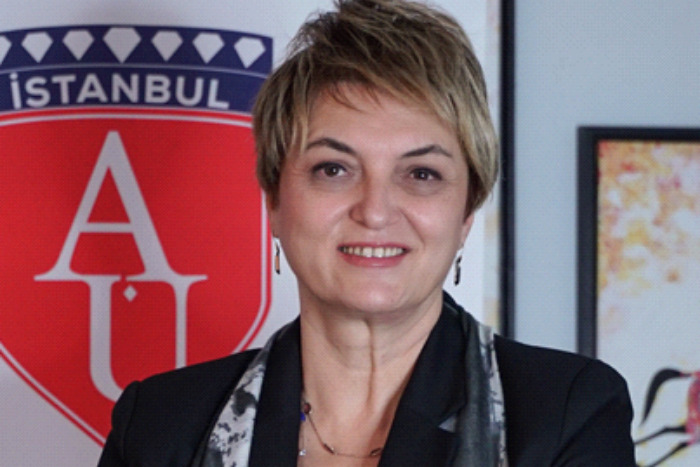"Childhood Traumas Should Not Determine Your Fate"
The impact of traumas experienced during childhood can be profound and long-lasting. Altınbaş University's Psychology Department APAM Center Faculty Member Prof. Dr. Dilek Şirvanlı Özen discussed ways to cope with trauma.

Challenging living conditions and increasing stress levels can sometimes leave individuals facing situations they may find difficult to cope with. Especially, the impact of traumas experienced during childhood can be deep and long-lasting. So, do these traumas, which can have consequences that affect an individual's entire life, have to be our destiny?
Prof. Dr. Dilek Şirvanlı Özen, Faculty Member at the APAM Center of Altınbaş University's Psychology Department, says that solving these usually long-term issues is not impossible.
Prof. Dr. Dilek Şirvanlı Özen stated, "By understanding the causes of trauma well, observing its symptoms, and seeking professional help when necessary, do not let childhood traumas determine your fate," and provided important recommendations.
Emphasizing that overcoming childhood traumas can vary from person to person, Prof. Dr. Özen explained what can be done for a healthy healing process:
"Maintaining a healthy lifestyle, regular exercise, and balanced nutrition can contribute to the improvement of physical and emotional health. Similarly, artistic and creative activities that encourage emotional expression, such as drawing or listening to music, contribute to emotional healing processes. It is crucial for both parents and children to receive education on trauma. Education increases awareness of the issue, which plays a significant role in the healing process."
Discussing the benefits of participating in family therapy to strengthen and support relationships among family members, Özen said, "Receiving emotional support from loved ones such as family and friends, them understanding the child's emotional world and showing empathy, can help the child express themselves better and support the emotional healing process."
Prof. Dr. Özen also provided information on the most common childhood traumas. According to her, neglect and/or abuse during childhood are the leading causes of trauma. Özen stated, "Situations such as not providing adequate care to the child, emotional neglect, and sexual or physical abuse can lead to severe traumas. Domestic violence is another significant factor. Children are significantly affected by physical, emotional, or sexual violence between parents. Similarly, the divorce or separation of parents is a disruptive factor."
She listed other important factors as well:
Losses or separations: The loss of a significant person, such as one of the child's parents, or their removal from the child's life. Economic problems: The child's basic needs not being met due to economic problems the family faces. Illness: The child or a family member experiencing a serious and long-term health problem. Migration: The family moving to a different place. Natural disasters: Natural disasters such as earthquakes, fires, floods.
Özen emphasized that experiencing such situations can lead to emotional difficulties, lack of trust, anxiety, adjustment difficulties, and stress in children. However, it should be noted that every child is unique, and the same events can evoke different reactions in different children.
Özen also mentioned that the effects of childhood traumas can vary depending on the child's age, developmental level, personal characteristics, and the support system they have. Especially traumas experienced during specific age periods can have different effects based on the child's unique qualities. She listed the results of trauma according to age groups:
Infancy (0-2 years): Separation of parents can cause the individual to experience security and attachment problems in their later life, while neglect during this period can negatively affect the emotional and physical development of infants. Preschool period (3-6 years): Exposure to domestic violence within the family can lead to emotional and behavioral problems, and sexual abuse during this period can harm the person's personality development and sense of trust. School-age (7-12 years): Encountering school bullying can affect the child's social relationships and cause self-esteem problems. Family conflicts during this period can negatively affect the child's emotional balance. Adolescence (13-18 years): Experiencing sexual violence can make it difficult for the individual to form their identity. Possible traumatic events during this period can negatively affect the individual's efforts to become an independent person.
Prof. Dr. Özen stated that the emotional, social, cognitive, and physical developments of children can be adversely affected by traumatic experiences, with reflections spanning from childhood to adulthood. She emphasized that childhood traumas can have a series of impacts in various areas throughout life:
They can lead to emotional problems such as depression, anxiety, and post-traumatic stress disorder. They can cause relationship problems such as trust issues, attachment problems, and difficulties in forming relationships. Children may struggle to establish secure relationships in their adult lives. Behavioral problems such as aggression, rebellion, attention deficit, and hyperactivity can occur. Physical health problems such as chronic pain and immune system problems may arise. They can affect the child's confidence and self-esteem, leading to difficulties in adulthood, such as challenges in achieving success, believing in one's abilities, and self-worth. They can make it difficult for the child to adapt to their society, leading to problems such as academic failure, social isolation, and discipline issues.
In conclusion, Prof. Dr. Özen emphasized the importance of understanding the unique characteristics of each child, considering that the same events can have different effects on different children. She stressed that it is essential to be aware of the potential impact of traumas on children and to provide the necessary support and interventions for their healthy development.

